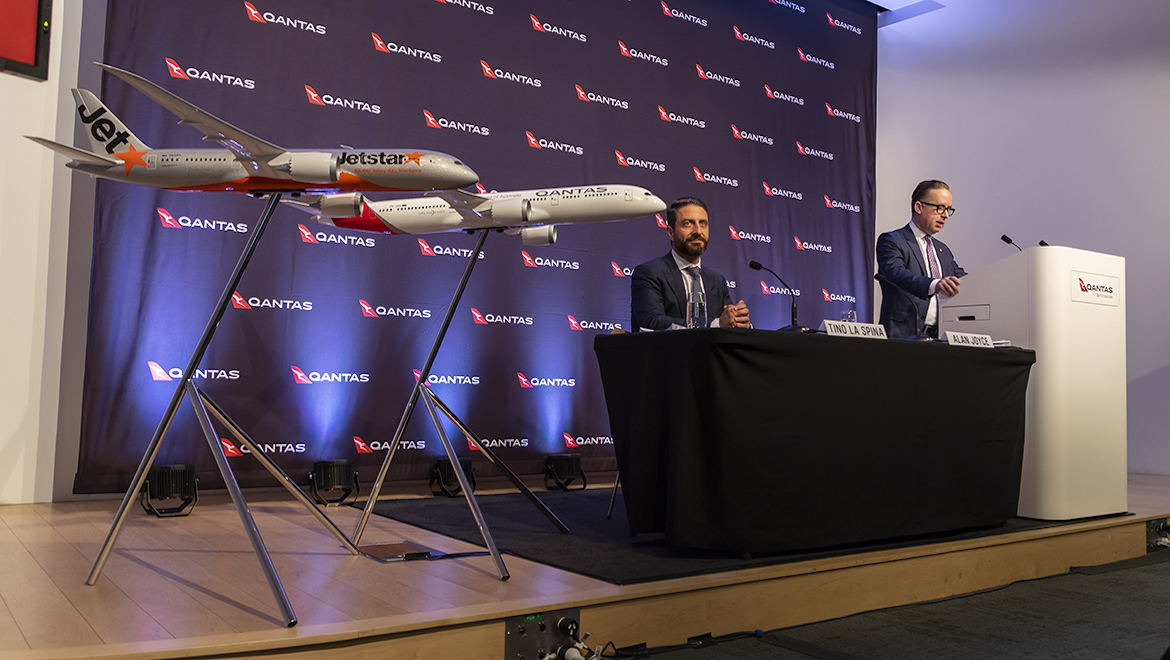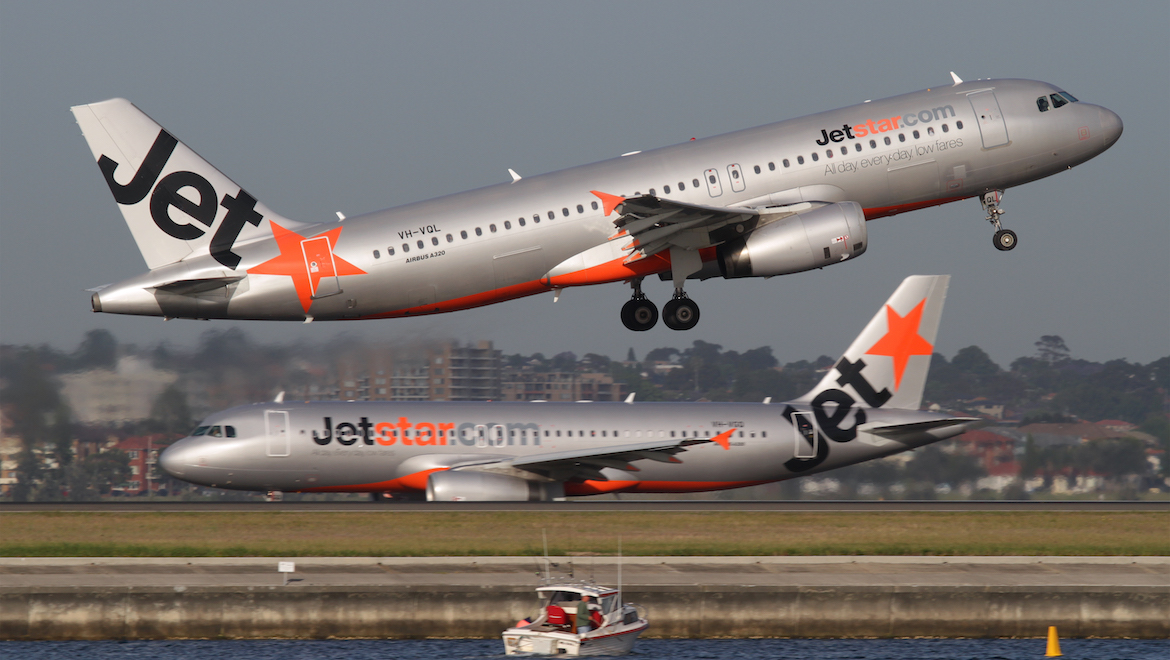
Qantas has reported a 6.5 per cent decline in full year net profit for 2018/19 as higher fuel prices and a weaker Australian dollar hit the bottom line.
The airline group said net profit after tax for the 12 months to June 30 2019 was $891 million, down from $980 million in the prior corresponding period.
Revenue rose 4.9 per cent to $17.97 billion, Qantas said in a regulatory filing to the Australian Securities Exchange (ASX) on Thursday.
Qantas said the full year result included a $617 million increase in the airline group’s total fuel bill to $3.85 billion.
Meanwhile, a weaker Australian dollar, which fell from about 73 US cents to about 70 US cents in the 12 months to June 30 2019, also had a impact on $150 million the full year result.
“It’s a particularly strong result when you consider some of the headwinds we managed in the year,” Qantas chief executive Alan Joyce said in prepared remarks.
“We’re pleased with how the business is performing.”
Underlying profit before tax, which removes one-off items and was regarded as the best indication of financial performance, fell 16.8 per cent to $1.30 billion, from a restated $1.57 billion in the prior corresponding period.

Businesses profitable
Qantas said its domestic business achieved underlying earnings before interest and tax (EBIT) of $740 million in 2018/19, down 3.3 per cent from the prior corresponding period. Revenue was up 2.7 per cent to $6.11 billion.
Capacity, measured by available seat kilometres, fell 1.5 per cent, while load factors were steady at 77.8 per cent.
Qantas said the resources market continued to strengthen, with capacity added in Western Australia and Queensland contributing to a $47 million revenue increase from this part of the market.
Meanwhile, Qantas’s international operations continued to do it tough, suffering a 28 per cent decline in underlying EBIT to $285 million, following on from a 60 per cent decline in the first half.
“There was a significant improvement in second half performance, as competitor capacity and overall fare levels adjusted to higher fuel prices,” Qantas said.
Low-cost carrier (LCC) unit Jetstar, the airline group’s third flying business, posted a 19 per cent decline in underlying EBIT at $370 million due to the “negative impact” of foreign exchange movements and “significant increases in airport charges and taxes in Singapore”.
Outlook
While Qantas did not provide profit forecasts for the 2019/20, the company provided guidance regarding its capacity plans for the year ahead.
It said capacity across the airline group was expected to increase by one per cent in the first half of 2019/20.
Its Jetstar and Qantas domestic network capacity would be “flat to slightly down”, while international capacity was tipped to rise 1.5 per cent.
Meanwhile, the airline group’s total fuel bill was expected to rise by $100 million to $3.95 billion.
Qantas declared a fully franked final dividend of 13 cents per share.





